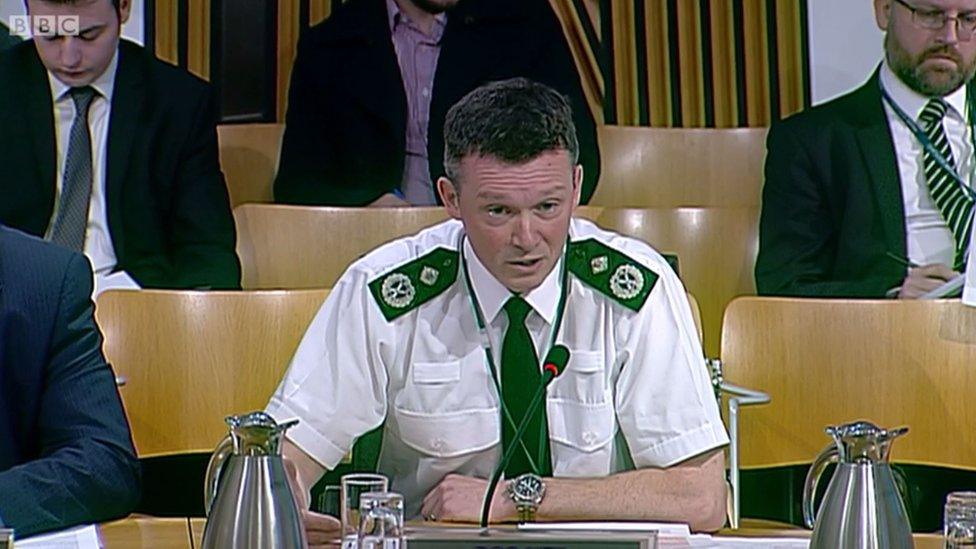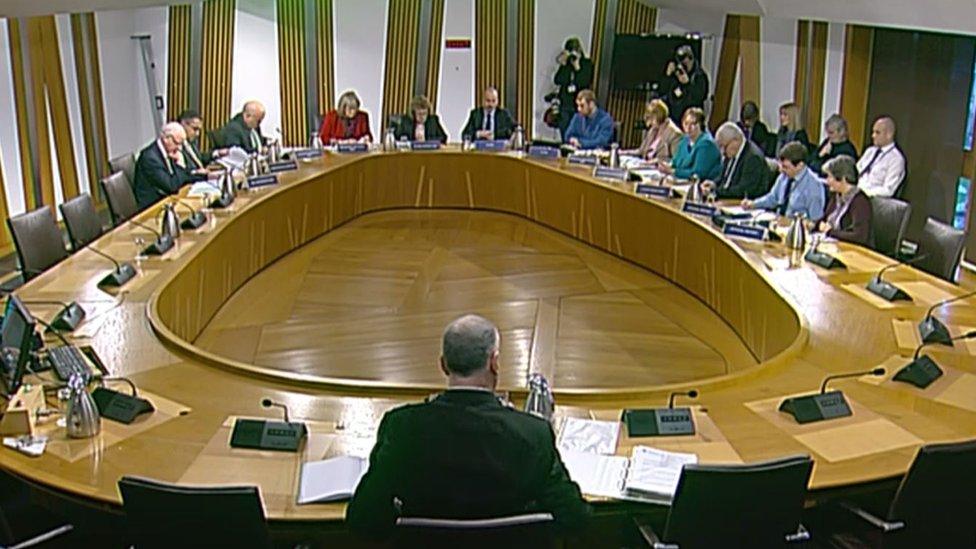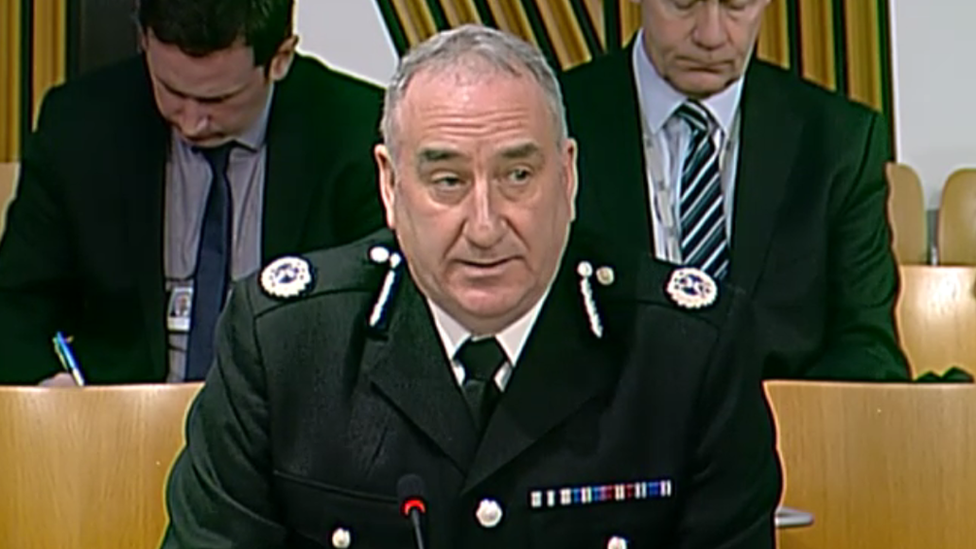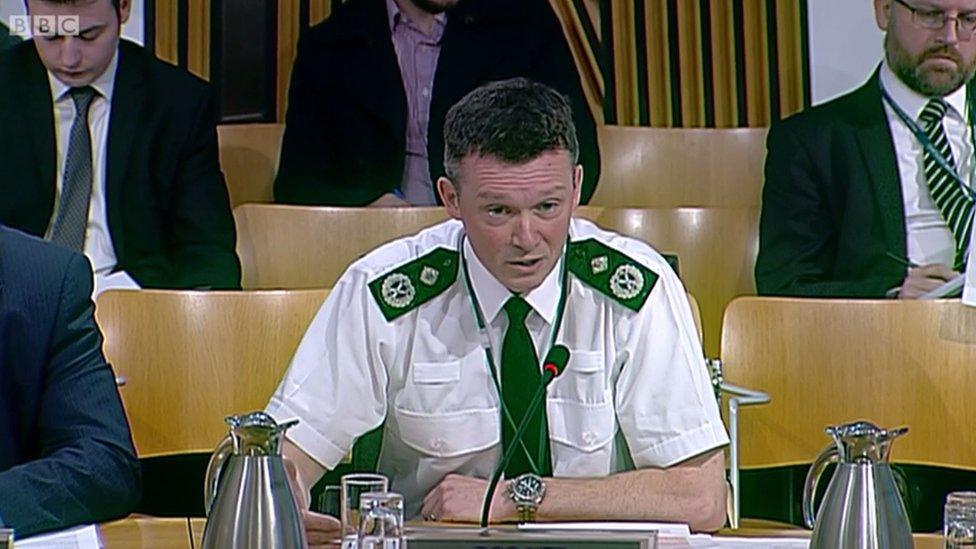Officer accuses police boss of 'completely false' leak claim
- Published

DCC Neil Richardson told MSPs the rule breaches had resulted from a "misjudgement"
A complaint by a detective against one of Scotland's most senior police officers is to be investigated by the Scottish Police Authority (SPA).
Det Insp David Moran has accused Deputy Chief Constable Neil Richardson of damaging his reputation during evidence to a Holyrood committee.
He claims the senior officer falsely indicated he was the source of a leak to a newspaper about a murder case.
Police Scotland said it was normal to refer such complaints to the SPA.
MSPs on Holyrood's Justice Committe are investigating after officers broke rules by intercepting communications without approval.
The interceptions were ordered after stories about the 2005 Emma Caldwell appeared in a newspaper article.
But they broke newly-introduced rules which meant that judicial approval needed to be obtained in such cases.
Mr Richardson gave evidence to MSPs in December, saying the breach had resulted from a "misjudgement".
But in a letter to the committee, Det Insp Moran claimed he had been wrongly identified as the source of the leak as a result of the senor officer's evidence.
And he accused the deputy chief constable of making "outrageous and completely false" claims which amounted to "misconduct".
Extremely damaging'
In his letter, Mr Moran confirmed he was investigated when police were trying to determine the source of a newspaper article about the murder of Emma Caldwell in 2005.
He said he had declared as soon as the article was published that he was a friend and former colleague of "one of the persons behind" the story, but that he had "no knowledge" of the story or the investigation.
Mr Moran said he was "outraged" to discover that he had been investigated by fellow officers in a manner he believes to be illegal. He is calling for a criminal investigation.
Furthermore, he said Mr Richardson had "in effect" identified him as the source of the leak during his evidence session with MSPs by referring to a "serving officer within the murder squad".
He said this had led to him being "falsely exposed very publicly".
He said the senior officer's statements to the committee had been "extremely injurious" for his reputation, adding: "I believe him to be guilty of misconduct in misrepresenting to you what happened in respect of the police investigation into me."

Holyrood's justice committee has been investigating police breaches of new spying regulations
A Police Scotland spokesman said the matter had been referred to the Scottish Police Authority, as is standard when complaints against senior officers are received.
He said: "We are aware of the correspondence and are reviewing its content including the allegations.
"Due to the potential of proceedings in relation to an Investigatory Powers Tribunal and the fact that a complaint has been made to the police in relation to this matter, we cannot comment at this time."
The interception of communications by Police Scotland is also being investigated by HM Inspector of Constabulary and the Investigatory Powers Tribunal.
Four officers named as part of the Holyrood inquiry have all declined to come and speak to MSPs in person, although one has submitted written evidence.
Via her solicitors, Det Insp Joanne Grant said she was "not aware" of a new code of practice brought in on 27 March, 2015, when she authorised communication interceptions on 1 May that year.
- Published29 January 2016

- Published12 January 2016

- Published15 December 2015
